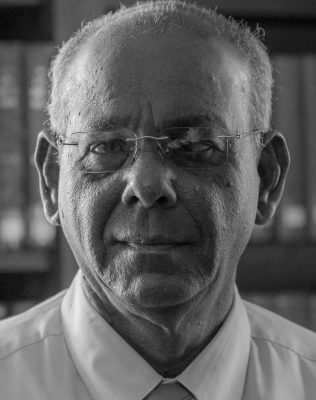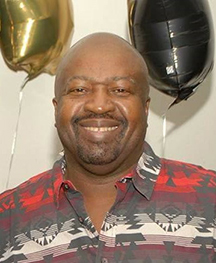While the Caribbean Court of Justice (CCJ) has established that the current APNU+AFC administration is now serving as a “caretaker” government, following the passage of a no-confidence motion against it last year, opinion so far is divided on the implications for the exercise of its authority.
In delivering an eagerly-awaited judgment last Friday, CCJ President Justice Adrian Saunders explained that Article 106 of the Constitution envisages that with its defeat on the no-confidence vote, the government is “on a different footing.”
“By convention, the government is expected to behave during this interim period as a caretaker and so restrain the exercise of its legal authority. It is this caretaker or interim role that explains the three month deadline, in the first instance, that the Article lays down, in principle, for the holding of the fresh elections,” he said.

Opposition leader Bharrat Jagdeo has reiterated that a “caretaker” government cannot function as per normal.
However, political analyst David Hinds disagrees, as he says that a “caretaker” government is meant to be a temporary administration and, therefore, is expected to continue functioning as normal until the holding of general elections.
He warned members of the public not to allow the outbursts of the opposition to cause them to believe differently.
“It functions as a normal government with no restrictions on spending, defending the borders, signing treaties or agreements and looking after the welfare of citizens. The Head of Government continues to represent the country at international fora and make binding decisions on behalf of the country,” Hinds told Sunday Stabroek in an invited comment.
Hinds is a member of the Working People’s Alliance, which is part of APNU and his party issued a statement yesterday echoing his views of the government’s status.
Hinds further noted that the Constitution has not defined the scope of a “caretaker” government and the CCJ was vague in that regard. “Mr. Jagdeo defines a caretaker government in minimalist terms. He is arguing that the government should do very little and confine itself to preparing for elections. I beg to differ. Any government, whether caretaker or otherwise, is tasked with two major functions—protect the country’s sovereignty and look after the welfare of its citizens. Those functions require a fully constituted and empowered government,” he said.
He stressed that the concept of a “caretaker” government is an elastic one as it can be stretched to suit any interpretation. “In other words, such a government can function normally. In that regard, a caretaker government is no different from a lame-duck government. This so-called caretaker government has to continue to look after the welfare of the people—health, education, social security, public security, infrastructure, the economy, regulations etc. It follows that it can prepare a budget in pursuit of the above-mentioned function,” he added.
The Ministry of Finance recently issued a circular advising the various ministries and agencies to begin preparing the 2020 budget. The budget is usually presented in the National Assembly on the last Monday in November. The Alliance for Change (AFC), a member of the coalition government, says it sees no issue with the commencement of budget preparations.
According to Hinds, the only major difference between a “caretaker” and a normally functioning government is that at the top of the agenda of the former must be the holding of elections. “Second, it is [a] temporary government whose life in office is determined by the prescribed constitutional timeline or a two-thirds vote of the National Assembly,” he said, while adding that its popular mandate ended with the CCJ ruling and “it now serves at the pleasure of the constitutional requirements or of the legislature.”
The University professor insists that this, however, does not diminish the government’s ability to carry out its normal functions. To further solidify his point, he said that “caretaker” is the term that is used for a government that falls by a no-confidence vote and it simply means that that government becomes “temporary or interim.”
“A country must have a fully empowered government at all times. Just think what would happen if there are threats to internal security or a national disaster erupts or [the] economy begins to unravel and there is no fully empowered government,” Hinds said.
He pleaded with citizens not to be confused by the outpourings from the opposition side. “The CCJ did not rule or order that there should be a restricted government; it declared the government a temporary one. There is a clear difference between a restricted government and a temporary one,” he added.
‘Caretaker Conventions’
In his January 6th, 2019, Conversation Tree column, published in the Sunday Stabroek, Senior Counsel Ralph Ramkarran, a former two-term Speaker of the National Assembly and now executive of new political party A New and United Guyana (ANUG), addressed the caretaker role for government after the resignation of the Cabinet.
Noting that the President and Cabinet would be unlawfully holding on to office by not resigning after the passage of a no-confidence motion, he said that the “Caretaker Conventions” apply when a government is facing elections, usually from the dissolution of the Parliament to the election of the new government.
“In summary, the conventions are that no major policy decisions are taken to commit an incoming government or limit its freedom to act, no major contracts or agreements are entered into and the use of government resources in a manner to advantage a particular party is avoided,” Ramkarran wrote.
According to Ramkarran, in this case, the “Caretaker Conventions” should be applied from the moment the no-confidence motion was passed because Article 106(6) dictates the resignation of the Cabinet, “which suggests a caretaker role for the Government thereafter.”
Ramkarran, in his column, had also responded to statements made by Minister Khemraj Ramjattan at that time that there had not been a resignation of the President or the Government nor would there be such a resignation. The minister, he reminded, said that the country cannot be left without any government at all; that “a governance vacuum is never permitted” and that “the Government retains its full panoply of legal powers….and is with jurisdiction to exercise its legal authority.”
“It is not known if Minister Ramjattan, an experienced lawyer, realises that Article 106(7) specifically provides that there shall not be a ‘governance vacuum’ and, in fact, emphasises that the Government will only resign after a President is elected by the election to be held. Also, it is not known if Minister Ramjattan is aware of the ‘Caretaker Conventions’ which apply when a government is facing elections,” Ramkarran wrote.
Parliament has not been dissolved and Director General of the Ministry of the Presidency Joseph Harmon, prior to the CCJ’s pronouncement on Friday, had publicly said a sitting may be held before the annual recess next month as there are several pieces of new legislation which have to be considered. It remains to be seen whether this position still obtains in light of the court’s ruling.










